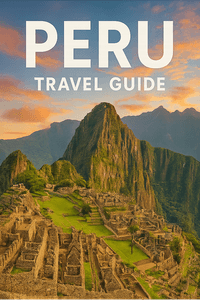The s spectacled bear, known locally as the oso de anteojos, plays a vital role in Peru's ecosystem, particularly in the Andean region surrounding Machu Picchu. These bears are the only bear species native to South America and are crucial for maintaining the health of their habitat. They primarily feed on fruits, nuts, and vegetation, which helps in the dispersal of seeds throughout the forest. This natural process contributes to forest regeneration and biodiversity, making them key players in their ecosystem.
Visitors to Machu Picchu and the surrounding areas may be fortunate enough to spot these elusive creatures, especially in the cloud forests. When trekking through the Sacred Valley or visiting the ancient ruins, keep your eyes peeled for signs of wildlife. Be respectful and maintain a safe distance if you encounter a spectacled bear, as they are shy and primarily solitary.
Local communities also play an essential role in the conservation of these bears. Many indigenous groups work to protect their natural habitat and educate travelers about the importance of these animals in the ecosystem. Engaging with local conservation efforts can enhance your travel experience and contribute to the sustainability of the region.
For those interested in wildlife photography or eco-tourism, consider hiring a local guide who specializes in wildlife observation. This not only helps you get a closer look at the bears and other wildlife but also supports the local economy. Remember to pack binoculars and a good camera!
In addition to their ecological importance, spectacled bears are woven into the cultural fabric of Peru. They are often featured in folklore and are considered a symbol of strength and endurance. Learning about these cultural perspectives can enrich your understanding of the region.
Finally, as you explore the wonders of Machu Picchu and the Sacred Valley, take time to appreciate the intricate balance of nature that allows species like the spectacled bear to thrive. Your journey through this breathtaking landscape will not only be an adventure but also a chance to contribute to the preservation of Peru's rich biodiversity.






